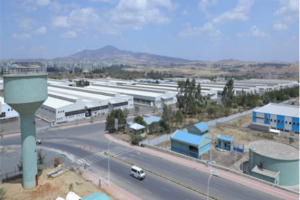
Yesterday, the House of People’s Representatives conducted its 28th regular meeting and various questions including economic, political and security issues were forwarded by the members of the House to the Prime Minister.
Responding to the questions particularly on the economic issues, Prime Minister Abiy Ahmed (PhD) said that five years ago, when the government assumed power to revive the recessed economy took an urgent measure by introducing the Home Grown Economic Reform program.
It targeted on various issues and among others, stimulating the private sector and to reduce the dominant role of the government in the economy because the public sector was inefficient to create job opportunities to the unemployed citizens.
The plan also intended to bring remedy to the anomalies witnessed on the macro economy, such as inflation, shortage of hard currency, regulate Birr to Dollar exchange rate, enhance the nation’s capacity to pay its debt which had been cumulated since many decades back and reducing illegal trade and enhancing the incoming remittance to boost the nation’s currency reserves.
The third objective of the homegrown economic reform program, according to the Prime Minister, was to boost production and productivity on various sectors such as in agriculture, service and industry. However, as to him, the nation faced insurmountable challenges emanated from manmade and natural calamities. On the other hand, due to the outbreak of COVID-19 and the war in the northern part of Ethiopia, the nation achieved less progress as compared to the intended plan.
The nation now introduced the second home grown economic growth program which is going to be operational soon. As to the Prime Minister, challenges witnessed recently, such as budget deficit, inflation and war have rooted in the past which the government inherited from the previous regime. To resolve the problems and to lay ground for better economic performance to the coming generation, the government is steadily working.
He further said that when the government assumed power five years ago, the nation’s foreign debt reached 59 % of its Gross Domestic Product and tried to reduce the debt by half. As to him, after three years the national election will be conducted and until that day the economic plan derived from the second homegrown economic reform will be implemented and in such a way, redressing some of the economic weakness will be realized and to that end working diligently is essential.
According to the Prime Minister, the world economy is full of hope and threat. The technological advancement connected countries and peoples but side by side with these positive outcomes, there are economic sabotages curtailed the gained progress. Social media which disseminate negative and unfounded information brought negative consequence on the healthy relation of communities. However, it is a duty of the nation to withstand the challenges and look forward.
International financial institution such as the IMF predicted that the world economy will register lower economic growth this year. Last year it was predicted to grow by 3.4 %, this year by 2.8 % and next year it will grow by only 1.4 %. The world economists predicted the figures through scrutinizing each country’s performance. The countries’ economic progress determined not only by their performance it is rather highly influenced the world economic activities.
For instance, the crises witnessed due to the war between Russia and Ukraine has a pill over effect negatively on other countries’ economy. IMF’s forecast regarding the Ethiopian Economic growth; last year was 6.4 %, this year 6.1 % and next year it will grow by 6.4 %. But according to the prime minister, Ethiopia expects a minimum of 7.5 % this year by the end of September.
As to him, agriculture contributes 33 % to the nation’s GDP which is 1/3 of the total economy and will grow this year by 6.3 %. For the sector’s growth, cereals such as rice, maize and wheat play pivotal role. Rice will grow by one fold. Teff and honey productions also showed growth. Poultry also showed progress and this year 4o million chickens are distributed to farmers. At family level people engaged in poultry. Progress also witnessed in fruit production and few farmers, in South Omo Zone, engaged in fruit production could obtain 100 thousand Birr profit.
The industry sector contributes 28 % to the nation’s Gross Domestic Product and expected to grow by 8.2 % this year. After the end of the war broke out two years ago in the northern part of the country, it was possible to revive 160 factories which were closed down due to the war. Industrial production and productivity is expected to grow. The electric consumption of the nation is increased by 15 % and this indicates the progress registered in the manufacturing.
The service sector contributes 39 % of the GDP and tourism in this regard played pivotal role. However, as to the Prime Minister, the registered progress is not free from challenges of which inflation is the major one. Inflation is the major problem which creates havoc not only on Ethiopian economy but also on the world at large and has been number one agenda to all countries.
United States, to overcome the problem occurred due to inflation, increased the interest rate of Dollar in banks and later the value of Dollar become appreciated which in turn created shortage of Dollars in other countries’ banks. As a result, 90 countries depreciated their currencies by 80 % and totally incurred them 360 billion Dollars to stabilize their economy. Out of the 90 countries 60 countries are in deep crises and the rest 20 countries are leveled as the countries which unable to service their debt.
As to the Prime Minister, in Ethiopia the Birr exchange against Dollar is depreciated by 80 %. The shortage of Dollars left many countries to stay in agony. Ethiopia, in order to bring remedy to the financial crises induced by the world economic crises, has taken various measures and among others; adjusting the monetary policy by collecting the excess money circulating outside the banking system through setting attractive interest rate to depositors.
In the aspect of addressing the problem in supply side enhancing agricultural productivity and supply excess products to consumers has been taken as a way out. In addition, increasing investment in the agriculture sector is recommended. Inflation heavily harms the low income group of the society. Thus, supporting the poor through sharing basic needs and maintaining the shanty residential areas also help the poor enable to withstand the inflation.
The Prime Minister further said that the government, in order to bring remedy for inflation and stabilize the market, this year subsidized fertilizer by 21 billion Birr and fuel by 77 billion Birr. In the world context, though Turkey registered high economic growth in the last decade, it faced 73 % inflation, Argentina 100 % and Zimbabwe 170 %. In Ethiopia food inflation in the recent past was 43.9 percent now reduced to 28.5 %. The budget which is going to be allocated for next year is reduced in order to reduce the circulating money out of bank which highly contributes for the inflation.
In the coming months, the G20 countries summit will take place and they planned to reschedule poor countries’ debt payment. When the current government assumed power, the nation’s debt rose to 59 % of the GDP and now it is reduced to 38 %. In the coming three years the government intends to reduce its foreign debt to less than 30 % and Ethiopia lives up to its pledge to continue its debt payment and showed loyalty to lender countries.
He further said that, five years ago, the Ethiopian GDP was valued to 2.2 trillion Birr and now it rose to 6.2 trillion Birr. As a result, Ethiopia has been the largest economy in east Africa and the third in sub Saharan Africa next to Nigeria and South Africa. Its import trade volume rose to 365 billion Birr and grew by 26.1 % this year and the export trade volume rose to 574.5 billion Birr and grew by 13.4 percent this year.
BY ABEBE WOLDEGIORGIS
THE ETHIOPIAN HERALD 7 JULY 2023



